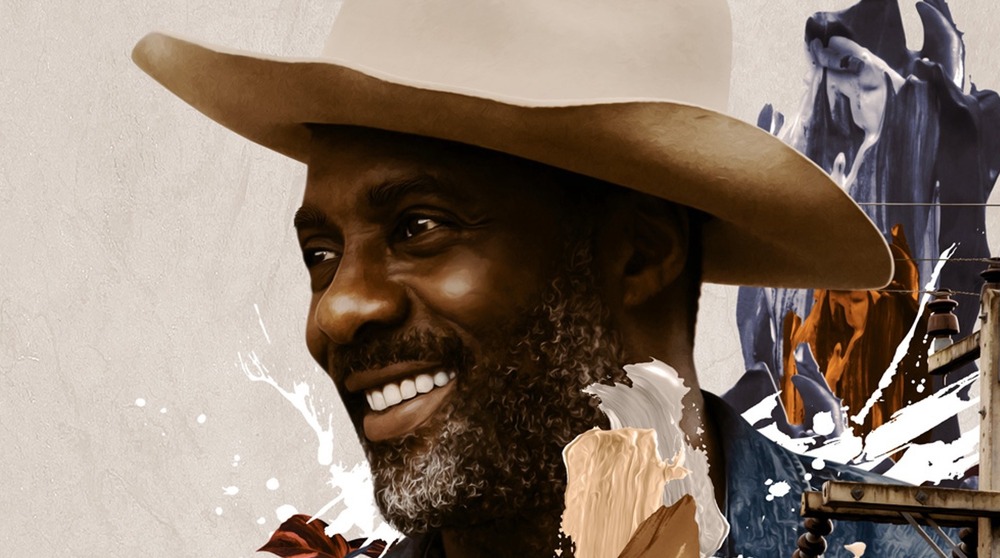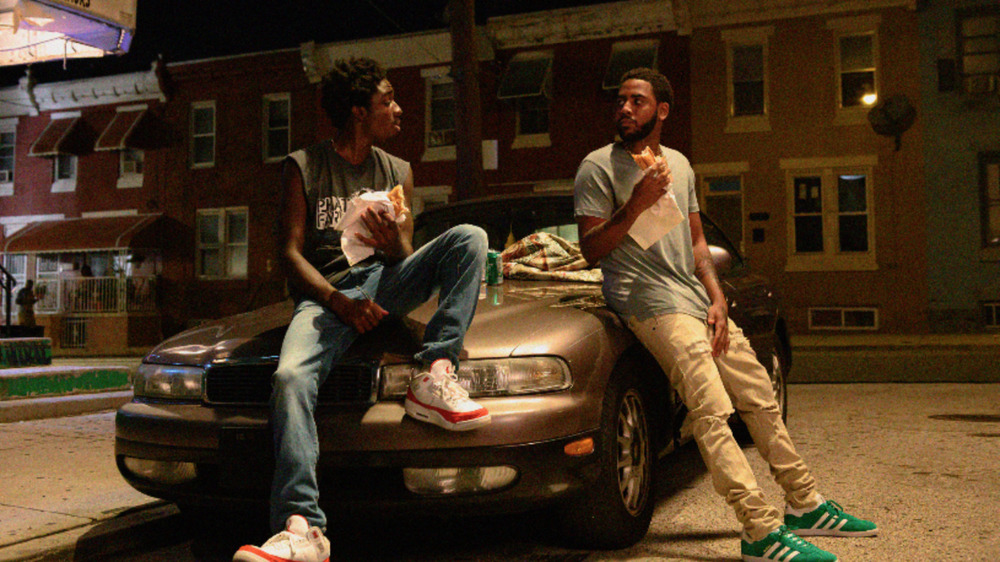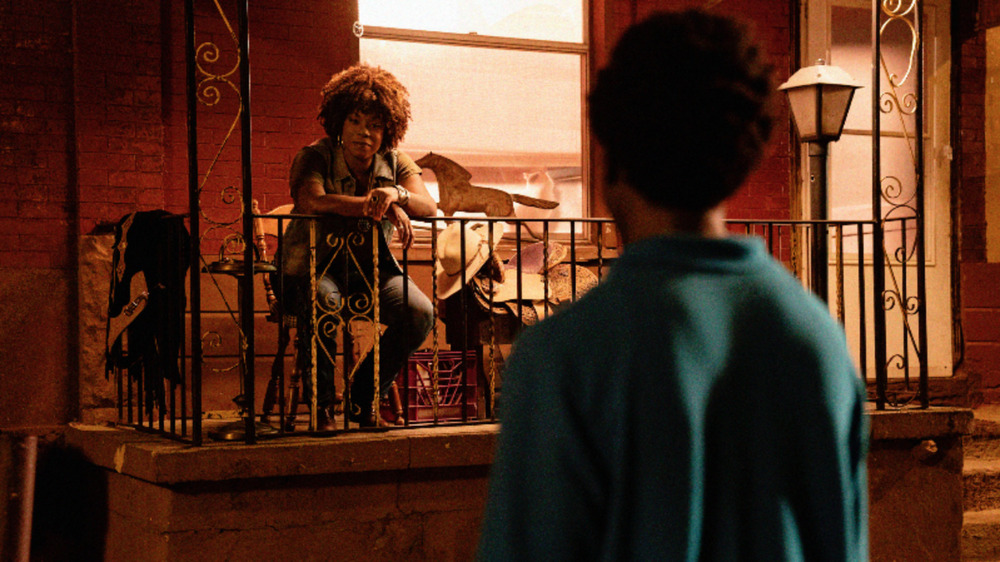Concrete Cowboy Review: A Disappointing Modern Western
It's no secret that the history of the American west has been whitewashed, with stories of African-American cowboys forgotten over time. This has certainly been the case in popular culture, where classic stories from the Lone Ranger to John Ford's The Searchers took inspiration from real-life Black stories in the west, only to recast their lead roles as white cowboys — reinforcing the idea that cowboys were predominantly white, despite historians agreeing that approximately a quarter were African-American. There have been modern attempts to correct this narrative, with Antoine Fuqua's stylish 2016 remake of The Magnificent Seven being the most noteworthy example to date, but for the most part, this rich history remains under-explored onscreen.
The Fletcher Street Urban Riding Club in North Philadelphia is the most famous modern organization tied to the history of Black cowboys. And it's only continued to grow since acquiring charitable status in 2015, helping local teens and young people gain valuable life skills while caring for vulnerable horses saved from slaughter. It's a fascinating group that, outside of the city, has remained something of a cultural footnote despite the unique community work they do. The biggest problem with Concrete Cowboy, director Ricky Staub's adaptation of the 2011 young adult novel Ghetto Cowboy, is that the real-life inspiration for the story is significantly more interesting than the formulaic coming of age drama that takes place in this setting, which occasionally references a rich history of Black cowboys in America but never explores it with any depth. The only thing unique about this coming of age tale is the cowboy community it takes place in — and when the film ends with talking head interviews explaining why the club is so important, it's hard not to wish you were spending two hours watching a documentary about it instead.
A cliched inspirational drama
The story starts in Detroit, where Cole (Stranger Things star Caleb McLaughlin) is at risk of being expelled from school due to a number of fights with other students. In a last-ditch attempt to put him back on the right track in life, his mother sends him off to live with his estranged father Harp (Idris Elba) in Philadelphia. Harp is a modern cowboy, and a member of the Fletcher Street Urban Riding Club, while his neighbor Nessi (Lorraine Toussaint) owns the famed stables. Cole is initially thrown off by being in such an alien environment, but after spending a night in the stables with the most notoriously boisterous horse, he's told he has what it takes to be a cowboy and take care of the animals.
Of course, things aren't that easy. Cole's childhood friend Smush (Moonlight star Jharrel Jerome) keeps trying to envelop him in a life of crime, much to the protestations of Harp. As Cole is caught between two different paths, the honorable way of the cowboy and the same descent into criminality he was facing back home in Detroit, the wider community is having some difficulties too. The North Philadelphia neighborhoods that surround the stables are getting increasingly gentrified, and there is a growing risk of the horses being taken away and relocated elsewhere.
Concrete Cowboy may not be a sports movie, but it follows the same narrative trajectory of all the underdog narratives you've seen before. There's even a Karate Kid-style "wax on, wax off" moment here, as one of Cole's first lessons in training to become a cowboy is to take on soul-sucking chores, here in the form of shoveling horse manure until he's trusted to take on any bigger responsibilities. These sports drama cliches aren't necessarily a problem, but when the film keeps offering brief nods to a more illuminating history about both the organization and the much-minimized role of Black cowboys in the old west, the reliance on these tropes can't help but feel like a letdown. It's even more of a disappointment considering director Ricky Staub's long-term fascination with the organization; in interviews promoting Concrete Cowboy, Staub has spoken about how he wanted to make a film based around the Fletcher Street Urban Riding Club since 2017, when he met former prisoner Jamil Prattis and was inspired by how he'd bought a horse and joined the club a week after leaving jail.
He likely saw parallels with his own production company Neighborhood Films, who help train and give work in the film industry to adults returning home from incarceration, and at one point, he even wanted to avoid using professional actors in favor of the club's real cowboys, a plan that was thrown out the window when the screenplay reached Idris Elba's desk. It's a film created by a man clearly inspired by the group's community outreach efforts, and yet it minimizes them to the extent you'd be forgiven for thinking this was just a fictional story about a quirky subculture with no basis in reality. None of the cowboy aspects of these characters feel natural (such as Smush's repeated desire to use a life of crime to make enough money to buy his own ranch), and instead feel like forced attempts to add the most generic western character traits into the drama. Relocating a familiar story from the expansive old west to a working-class inner city doesn't disguise how the film has nothing in the way of new ideas.
A missed opportunity to explore a fascinating history
Instead of looking at the lives of the cowboys with any depth, they exist as side characters in a generic inspirational narrative — likely a result of adapting this source material, but still a disappointment considering how much is ripe for exploration. There's a rich history on display here, but it's lost in the mix, used as window dressing for a coming of age drama with little in the way of surprises. Rather than offering a large audience a much-needed education on the histories and ongoing legacies of African-American cowboys, it merely exists as something you can play in one browser tab while going on a Wikipedia binge in another. The film may have not been produced by Netflix (instead getting snapped up following its TIFF premiere in 2020), but few films are as welcoming towards the dual screen experience, so reliant on cliches you can pick up the whole story while staring at your phone, reading up on a more interesting history the film doesn't spend enough time unpacking.
The reason this is so frustrating is that there are so many open goals as to how this could have properly been included in the narrative. There are repeated references to how just five blocks from the stables, neighborhoods are rapidly gentrifying, and elsewhere, brief discussions on how Black cowboy stories have been whitewashed in Hollywood. But the film never ties these two ideas together, when it could have been an interesting way to highlight the continued cycle of African-American cowboys being sidelined in the history books. Its insights remain as shallow as its inspirational drama cliches, despite solid performances from a cast doing their best to breathe life into vague sketches of characters.
Concrete Cowboy is an unremarkable coming of age drama which teases out a more interesting history it never takes the time to explore.


